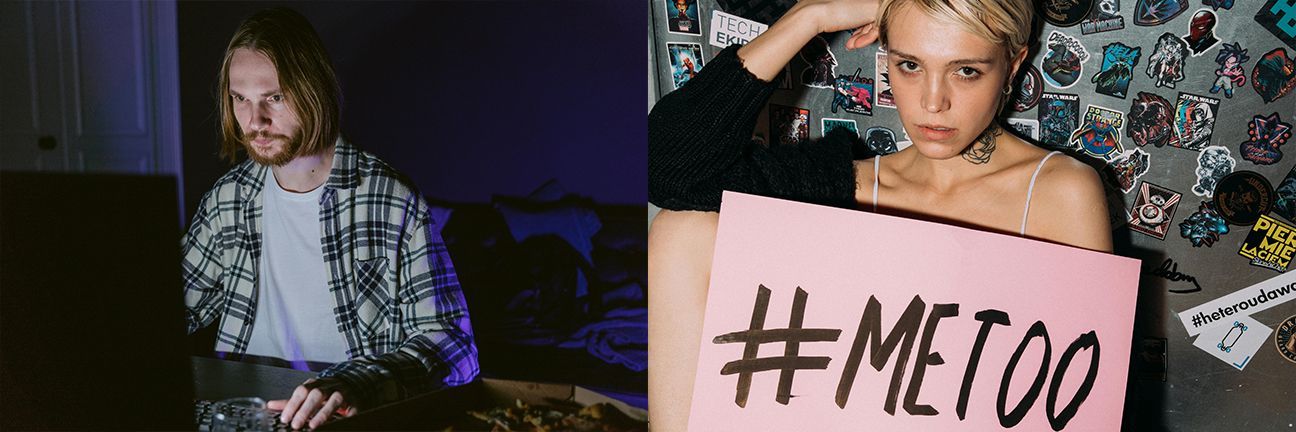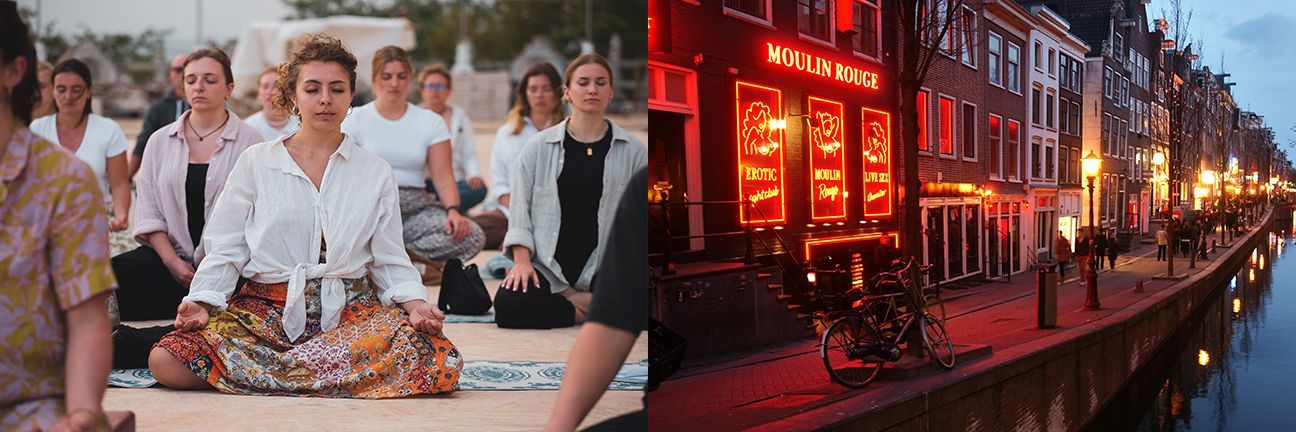When Laws Are Not Enforced: A Woman's Lifelong Experience with Patriarchal Injustice
Crime scene - Do not prosecute
I am a 57-year-old American woman. Over the course of my life, I have watched the law repeatedly fail to protect me and the women around me. Though many laws exist on the books, I’ve come to realize that laws are meaningless when they are not enforced. And when enforcement becomes optional—especially in cases where women are harmed—it begs the question: Is this just how patriarchy works?
I was first confronted with this reality as a kindergartener, when a boy attacked and forced kisses on me during school. I did what I was taught to do: I told the adults. I went to the principal’s office. Nothing was done.
Years later, I was sexually assaulted. Twice. No consequences for either perpetrator. No investigation. No trial. No justice. Only silence and the expectation that I “move on.”
Later, a boyfriend punched me in the face. I called the police. A report was filed. But the prosecutor chose not to pursue the case. Again, the law existed, but it meant nothing.
Even in recent years, the pattern continues. A man who had been a police officer left his job to work for me on a building project. He stole money. I caught him and had him sign a repayment agreement. He broke it. I pursued the matter legally and won. The justice of the peace ruled in my favor. And still—he has not repaid me. There is no enforcement, no collection, no consequence.
This isn’t just about my story. My sister was stabbed by a man in her own home. She survived. The police came. But again—the man went free.
It would be one thing if these failures came only from strangers or institutions. But even in my own family, I found no protection. When I told my father about one of the sexual assaults, his response wasn’t outrage. He told me he didn’t believe in anger and that I shouldn’t focus on the past. In that moment, I wasn’t just denied protection—I was denied emotional reality. The harm I had endured was minimized, spiritualized, and swept aside.
At some point, I began to see the pattern for what it is. When a woman goes to the authorities, it can feel like a hen going to the fox for protection. Whether or not that fox is wearing a uniform, it is still in his nature to break into the henhouse. We are told these systems exist to keep us safe. But when those in power turn their backs—or worse, are the ones committing the harm—then seeking justice can feel like walking straight into the arms of the predator.
And what’s more, the wounds inflicted on women are not just dismissed—they are held against us. A woman who has been hurt is seen as “damaged goods.” Her value drops in the eyes of society. She becomes "bitter," "too emotional," or "too much." We are expected to offer instant forgiveness, as if it’s realistic to recover without justice, without support, and without acknowledgment of the lasting injuries. When a man carries anger, he’s seen as strong. When a woman carries anger born of violation, she’s accused of being stuck in the past.
As if that weren’t enough, we are forced to fight again—this time just to convince the very enforcers of the law to do the jobs they’re already being paid to do. And when we do fight, when we demand accountability, when we refuse to accept silence, we are punished not for breaking the law—but for breaking the script. We are told we are not feminine enough, not agreeable enough, not quiet enough. We are accused of being "difficult" or "angry" or "unstable," simply for expecting the bare minimum: enforcement of laws that supposedly exist to protect us.
This is the second wound. Not just the violence itself—but the cultural backlash we receive for refusing to pretend it didn’t happen.
Imagine if the roles were reversed. Imagine if, in a primarily female-dominated profession like nursing, nurses routinely withheld medication from male patients unless those men offered sexual favors—and if those patients, upon objecting, were told to be quiet, to stop being so angry, to forgive the nurses, and to move on without ever receiving the care they needed. Imagine the outcry. Imagine the lawsuits. Imagine how quickly the system would be overhauled.
And yet, when women are denied protection, denied justice, and then denied the right to grieve or demand accountability, we’re told to be understanding, to be resilient, to be nice. Our pain is not seen as an emergency. It's treated as an inconvenience. We are expected to "forgive" in the absence of repair—as if endurance is a substitute for healing.
These are not isolated events. They are part of a deeply entrenched system in which harm to women is not treated as serious, in which justice for women is optional, in which we are often told—implicitly or explicitly—to simply forgive and forget.
We talk about laws. We talk about rights. But when enforcement is selectively applied—especially along gender lines—then the system is not broken. It is working exactly as it was built to work: to protect power, not people.
This is patriarchy.
It teaches us that when a man harms a woman, the woman should bear the burden of forgiveness, healing, and silence. That the law is there, but not for us. That justice is symbolic at best, and illusory at worst.
Even in Biblical times, there were supposed laws—like the one that said if a man took a girl's virginity, he had to take care of her for the rest of her life. Whether or not you agree with the law itself, its very existence pointed to a recognition that a man’s actions toward a woman carried responsibility. Yet today, those responsibilities vanish, and the burden is placed on the woman to recover on her own, often without support, validation, or justice.
Forgiveness has its place. But it should never be used as a substitute for accountability. And it certainly should not be used to cover up systems that routinely fail to protect the most vulnerable.
I write this not because I want pity. I write it because I believe in truth-telling. I believe that by speaking honestly about the ways we’ve been failed, we give each other permission to stop accepting silence as normal.
If you are a woman who has endured injustice without enforcement, you are not alone. You are not crazy. You are not weak. The system was not built for you—but your voice can help dismantle it.











